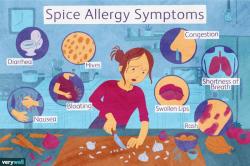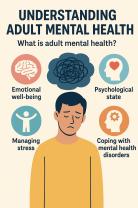Can OCD be cured naturally?
Obsessive-Compulsive Disorder (OCD) is a complex mental health condition characterized by persistent, intrusive thoughts (obsessions) and repetitive behaviors or mental acts (compulsions) aimed at reducing distress caused by these obsessions. OCD is typically managed rather than "cured," and the most effective treatment often involves a combination of psychotherapy, medication, and lifestyle adjustments.
While there's no guaranteed natural cure for OCD, some individuals find that certain natural approaches and lifestyle changes can complement traditional treatment methods and help manage symptoms. It's important to note that these approaches may not work for everyone, and they should not be used as a sole treatment for OCD. Here are some natural approaches that may help with managing OCD symptoms:
Mindfulness and Meditation: Mindfulness practices, such as mindfulness-based cognitive therapy (MBCT) and meditation, can help individuals with OCD become more aware of their thoughts and emotions. Mindfulness can be part of cognitive-behavioral therapy (CBT) for OCD.
Regular Exercise: Physical activity has been shown to have a positive impact on mood and anxiety. Regular exercise can help reduce stress, which can, in turn, alleviate some OCD symptoms.
Stress Reduction Techniques: Stress management techniques like deep breathing exercises, progressive muscle relaxation, and yoga may help individuals with OCD manage anxiety, a common component of the disorder.
Dietary Adjustments: Some individuals find that avoiding or reducing the intake of caffeine and other stimulants can help reduce anxiety, which may, in turn, improve OCD symptoms. Eating a balanced diet and staying hydrated is also important for overall well-being.
Adequate Sleep: Ensuring you get enough sleep can have a positive impact on mental health. Sleep deprivation can exacerbate anxiety and OCD symptoms.
Support Groups: Joining a support group for individuals with OCD can provide a sense of community and understanding. Sharing experiences and coping strategies with others can be helpful.
Herbal Supplements: Some individuals explore herbal remedies like St. John's Wort or passionflower for anxiety reduction, but it's crucial to consult with a healthcare professional before using any supplements, as they may interact with medications or have side effects.
Limiting Exposure to Triggers: Minimizing exposure to situations or stimuli that trigger OCD symptoms can be helpful. This may involve avoiding specific situations or modifying your environment.
Adequate Self-Care: Prioritizing self-care, including relaxation, hobbies, and spending time with loved ones, can contribute to better mental health and overall well-being.
It's important to emphasize that natural approaches should be used in conjunction with evidence-based treatments, such as cognitive-behavioral therapy (CBT) and medication (often with selective serotonin reuptake inhibitors or SSRIs). Effective treatment plans for OCD are typically developed with the guidance of mental health professionals who can tailor interventions to individual needs.
If you or someone you know is struggling with OCD, it's crucial to seek professional help. OCD can be a highly treatable condition, and with the right support and treatment, individuals can learn to manage their symptoms and improve their quality of life.












